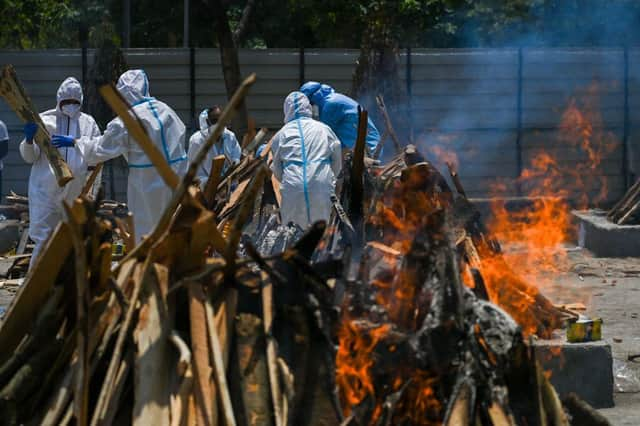Black fungus: what is the Mucormycosis infection reported in India Covid patients - and what are the symptoms?


Covid patients in India are reportedly suffering from a rare and potentially fatal black fungus infection called ‘Mucormycosis’.
In recent weeks, Indian hospitals have been overwhelmed by coronavirus patients, with oxygen supplies and beds running low.
Advertisement
Hide AdAdvertisement
Hide AdIt’s not just coronavirus, however, now ailing patients - with a number of ‘recovered’ patients being diagnosed with black fungus infections.
The infections can have a severe impact on patients, with high mortality rates being recorded alongside the high mortality rates for coronavirus in the country.
What is black fungus?
According to the Center for Disease Control and Prevention (CDC), Mucormycosis is:
“A serious but rare fungal infection caused by a group of molds called mucormycetes. These molds live throughout the environment. Mucormycosis mainly affects people who have health problems or take medicines that lower the body’s ability to fight germs and sickness.
Advertisement
Hide AdAdvertisement
Hide Ad“It most commonly affects the sinuses or the lungs after inhaling fungal spores from the air.”
The disease causes blurred or double vision, discolouration of the note, chest pain, coughing blood and breathing difficulties. It is commonly associated with people who have diabetes.
It’s most aggressive in those who have a weakened immune system.
Can it be treated?
Black fungus can be treated, with treatment including anti-fungal medicines, and, in some cases, surgically removing all infected tissue.
Advertisement
Hide AdAdvertisement
Hide AdExperts in India have warned that the anti-fungal medicines needed to treat the condition can be very expensive, with some hospitals running short of the medication after the recorded spike in India.
According to the CDC, the condition is potentially life-threatening, with a review of published mucormycosis cases finding an overall all-cause mortality rate of 54 per cent.
This is likely to be higher where effective treatments are not available, with officials in India warning that the current mortality rate is very high.
The Indian Council for Medical Research (ICMR), the scientific agency leading the government’s response to the crisis, Tweeted a warning:
‘Mucormycosis – if uncared for – may turn fatal.’
Why are there so many cases?
Advertisement
Hide AdAdvertisement
Hide AdCases of black fungus are around five times higher in India than was recorded prior to the pandemic, with the health ministry releasing advice over the weekend on how to treat the infection.
In the western state of Maharashtra, home to Mumbai, up to 300 cases of the infection have been detected, with around 300 also reported in four cities in Gujarat.
The western state has now ordered that black fungus patients be treated in separate treatment wards to avoid cross-infection.
It’s unclear whether the cases are linked to the ‘Indian variant’ of coronavirus, but it’s believed those who were given steroids to treat Covid or had prolonged stays in an ICU may be more susceptible to infection.
Advertisement
Hide AdAdvertisement
Hide AdDiabetes rates are also generally higher in India than in other developed countries, with a potential impact on the number of black fungus cases now being reported.
Doctors have been urged to look out for early symptoms of the disease, including one-sided headaches, sinus pain or nasal blockage, and toothache or loosening of teeth.